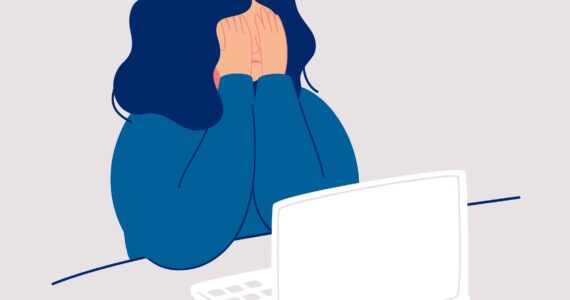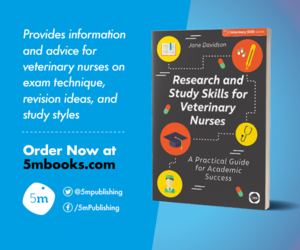
Coping with anxiety during the pandemic
Acceptance of the anxiety we feel, rather than trying to push it away, goes a long way to defusing it and reducing its hold over you.
The uncertainty and fear are palpable on the way to work, at work, traveling home from work, even in the (possible) safety of our own homes.
We have to socially distance ourselves while examining a patient being held by a colleague, manage our clients’ fears and anxieties and manage our own fears and anxieties about our families while being professional at all times.
It’s crowded where some of our work, and so difficult to stay 2m apart.
The shame we feel for using public transport to get to work adds to the anxiety, clutching onto a letter stating that we work as a vet in an emergency hospital as if it were the only thing keeping us safe.
The moral dilemma adds to the stress. Each and every one of us has to stay at home, protect the NHS and save lives. But here we are getting public transport to work feeling like we alone are responsible for this pandemic perpetuating.
And when we get to work, circumstances such as a lack of surgical disinfectant, shortage of face masks and gloves, postponement of prophylactic treatments, and the inability to help our clients with their concerns all add to the “moral injury”.
Moral injury is what can leave us with long-term psychological scars if we allow it to.
The feeling that we cannot perform as well as we should and that our patients and clients will inevitably suffer is hard to come to terms with.
We have handed our ventilators over to the NHS. Whether you think that’s morally right or wrong, it follows that some of our patients may die as a result and we won’t be able to feel or to say that we did everything we could do.
These moral injuries, injuries to our ethics, can have long-lasting negative psychological effects. Sir Simon Wessely, professor of psychological medicine at the Institute of Psychiatry, King’s College London, says the moral injury is “where you know you didn’t do everything you could have done”. It makes us feel angry, it makes us feel guilty and it makes us feel ashamed.
Sir Simon Wessely, professor of psychological medicine at the Institute of Psychiatry, King’s College London, says moral injury is “where you know you didn’t do everything you could have done”
Fear of the unknown causes more anxiety and we constantly have to improvise. Then the advice changes again.
Previously, many of us learned to leave work at work. Then we would leave the hospital and manage to have a life outside of work and in our homes where we would recharge. This pandemic changes all of that. It’s everywhere. There is no life outside of work that is free from COVID-19. And home is where we may be spreading the virus we picked up on the tube.
So what can we do?
We’re already washing our hands, social distancing, and self-isolating.
We’re clapping on our doorsteps and sending the NHS hospitals enough sweets through Amazon to make sure the dental profession flourishes after the pandemic.
Clear leadership, communication, and an acceptance that the situation may result in decisions that would not normally be best practices are needed.
We can draw up new and temporary protocols for this time. These protocols need to be agreed upon by us as a team otherwise they will harm our mental well-being further. When you’re tired and anxious and afraid, it’s nearly impossible to implement protocols you don’t agree with. So, more than ever, we need to be team-leading from within.
The emotionally intelligent team leader will facilitate this, coordinate the decision-making processes and produce clear instructions for the team made by the team.
Good leadership enables teams to support each other.
We’ve talked before about the three types of empathy and how highly functioning teams have all three running at full throttle. So, we need each other. We need the social interactions we normally take for granted. We need the hugs which are banned. We need to be with each other in the moment when cases are going well and when cases are failing.
Acceptance of anxiety
This is not the time to flood the practice with professional counselors. To be anxious is normal. To be afraid is a given. To feel shame is expected. Where else can we find cognitive empathy other than among our colleagues? From there, the emotional empathy will grow, and we can truly be there in the moment accepting the fact that although this pandemic will pass, for now, it’s not OK.

Comments are closed